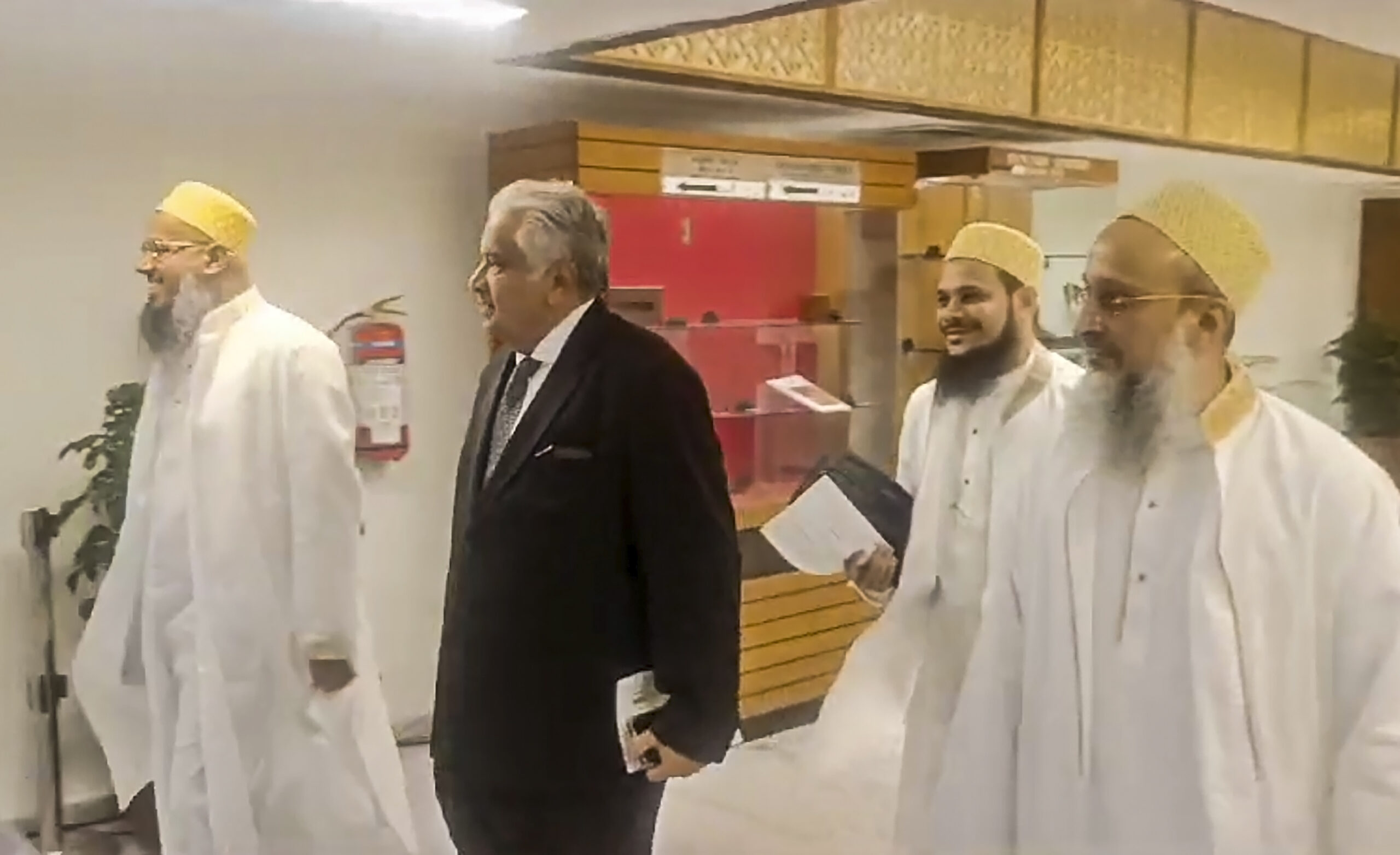- Friday, April 18, 2025
The power of the Waqf Board undermines the community’s founding faith, it claimed, citing various Supreme Court judgments

By: Shajil Kumar
CONTENDING that the Waqf (Amendment) Bill does not recognise their special status, the Dawoodi Bohra community, an affluent but microscopic sect among Muslims, told the parliamentary committee examining the proposed law that they should be kept out of the purview of any Waqf board.
Senior advocate Harish Salve appeared for them before the panel headed by veteran BJP MP Jagdambika Pal, and a written submission made by the community noted that it is a “small and tightly-knit” denomination.
“Its affairs do not need the kind of regulation that may be considered necessary or even desirable in relation to other denominations that do not believe in any such religious tenet,” it said, according to sources.
It is necessary that the community members are permitted to establish, maintain, manage and administer such properties in accordance with their beliefs and essential religious practices, it stressed.
The power of the Waqf Board undermines the community’s founding faith, it claimed, citing various Supreme Court judgments to underscore the judiciary’s recognition of their “distinctive structure”.
Salve argued at length about the Dawoodi Bohra’s distinctive features, especially the institution of ‘al-Dai al-Mutlaq’, a living community leader who enjoys absolute and unquestioned power in its affairs, to argue that any Waqf board can not be allowed to have the final power over the group’s properties and related affairs.
Any legislation that purports to place such properties under the administration of the Waqf Board is contrary to the faith and essential religious practices of the Dawoodi Bohra Community protected under Articles 25 and 26 of the Constitution of India, the sources said citing the written submission.
It added, “The Waqf (Amendment) Bill, 2024 fails to recognise the distinctiveness of the Dawoodi Bohra Community, nor provides for its special treatment.
It treats dissimilar communities similarly. We thus, seek a complete exclusion from the purview of the Waqf Act, 1995.”
The presentation said even if a Waqf board comprises only community members, it will still be “unworkable”.
A Dawoodi Bohra can never be part of a body that can doubt much less question the authority of its spiritual head, the sources said citing the presentation.
The ‘al-Dai al-Mutlaq’ is their sole trustee who administers all the properties of the community, and his decisions are sacrosanct and challenging his words is sacrilegious, it added.
The community members also said the existing Waqf Act, which was enacted in 1955, is “utterly incompatible” with their faith.
The presentation said as early as 1962 the apex court had recognised the Dawoodu Bohra community as a religious denomination under Article 26 of the Constitution.
As far back as 1923, the community had made a representation to be excluded from the Waqf legislation of that time, the representation said, adding that being a numerically microscopic community its fundamental practices have regretfully been ignored by the overarching provisions for Waqfs.
The community noted that it is part of the Muslim community with unique doctrines and practices and is a sub-minority within the Shia community in India. It is only 0.078 per cent of Muslims in the country. (PTI)